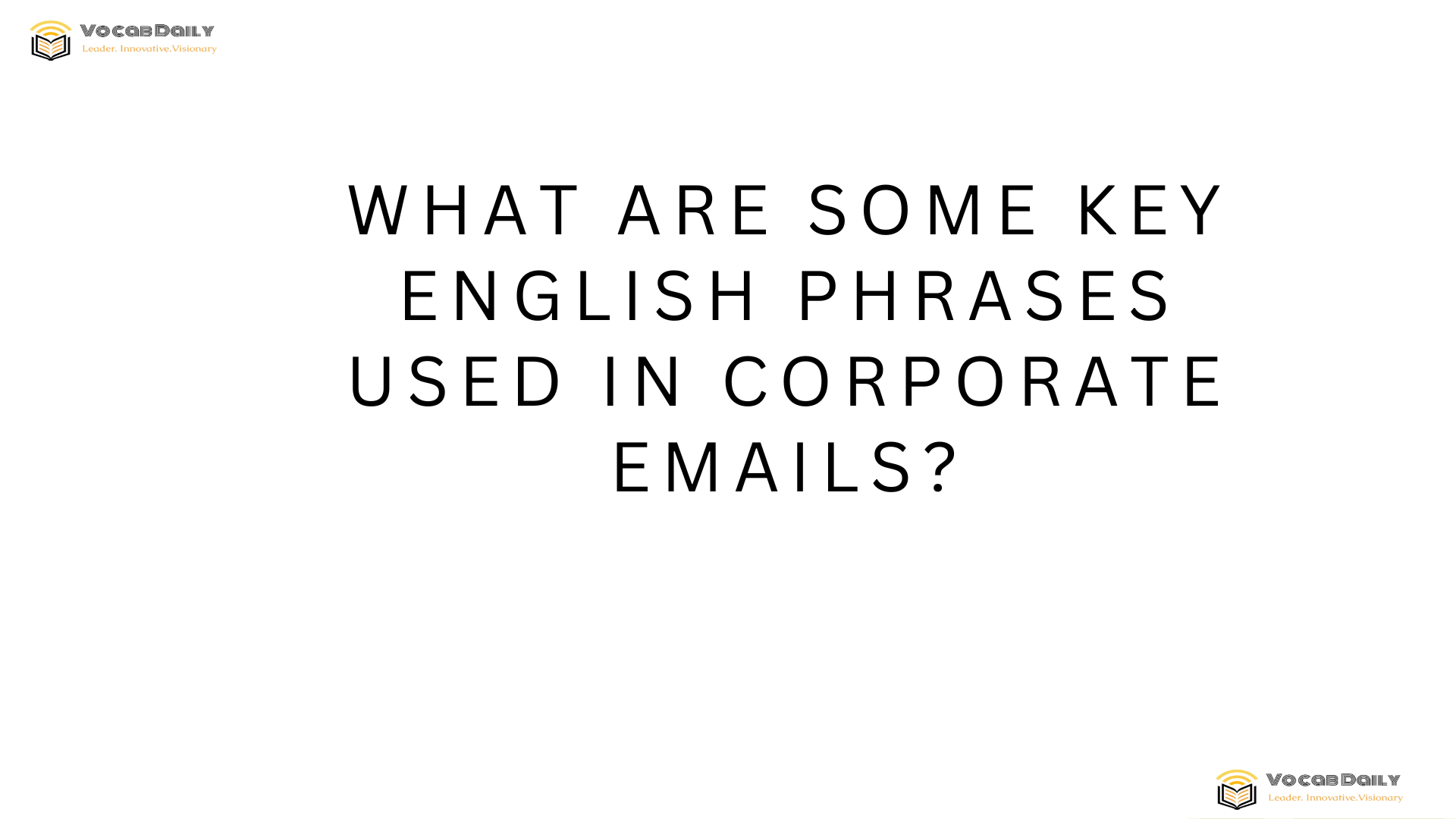What are some key English phrases used in corporate emails
Greeting and Opening Phrases
Starting a corporate email the right way sets a professional tone and builds rapport with the reader. Common greetings include phrases such as “Dear [Name],” “Hello [Name],” or “Hi [Name],” depending on the formality of the relationship. For more formal interactions, using “Dear Mr./Ms. [Last Name]” is recommended.
To transition from the greeting into the main message, opening phrases help create a smooth flow. Examples include:
- “I hope this email finds you well.”
- “I am writing to inform you about…”
- “Thank you for your prompt response.”
- “I would like to follow up on…”
These phrases express politeness and provide context, making the email easier to understand and more professional.
Requesting Information or Action
In many corporate emails, you will need to request information or ask the recipient to complete a task. Using clear, polite language helps in conveying your message effectively. Common phrases include:
- “Could you please provide me with…”
- “I would appreciate it if you could…”
- “Would you be able to send me…”
- “Please let me know if you require any further information.”
- “Kindly confirm your availability for…”
These expressions demonstrate respect and encourage timely responses, which are essential in a corporate environment.
Offering Assistance or Help
Showing willingness to assist shows professionalism and a collaborative spirit. Use these phrases to offer support:
- “Please do not hesitate to contact me if you need any assistance.”
- “Let me know if I can help with anything.”
- “I am happy to provide any additional information you may need.”
- “If you have any questions, feel free to reach out.”
These phrases encourage open communication and reassure the recipient that support is available.
Apologizing and Softening Bad News
Handling sensitive situations with grace is important. When delivering bad news or admitting a mistake, using polite and considerate language can preserve professionalism. Common expressions include:
- “I apologize for the inconvenience caused.”
- “We regret to inform you that…”
- “Unfortunately, due to [reason], we will not be able to…”
- “Thank you for your understanding.”
- “Please accept our sincere apologies.”
These phrases help mitigate negative feelings and maintain respect between parties.
Closing Phrases and Sign-offs
Ending an email professionally leaves a positive impression. Typical closing phrases include:
- “Thank you for your time and consideration.”
- “Looking forward to your reply.”
- “Please let me know if you have any questions.”
- “Best regards,”
- “Sincerely,”
- “Kind regards,”
The choice of sign-off depends on the formality and your relationship with the recipient. For formal emails, “Sincerely” or “Best regards” is preferred, whereas “Kind regards” suits a slightly more casual tone.
Phrases for Scheduling and Meetings
Emails often involve setting up or confirming meetings and deadlines. Clear, polite phrases facilitate smooth scheduling:
- “Would you be available for a meeting on [date] at [time]?”
- “Please let me know your preferred time for the meeting.”
- “I would like to schedule a call to discuss…”
- “This is a reminder about our upcoming meeting on…”
- “Thank you for confirming our appointment.”
These expressions help avoid confusion and keep everyone on the same page.
Expressing Gratitude and Appreciation
Showing appreciation fosters good working relationships. Use these key phrases to express thanks:
- “Thank you for your support on this project.”
- “I appreciate your help.”
- “Many thanks for your prompt attention to this matter.”
- “We are grateful for your cooperation.”
Gratitude makes corporate communication more positive and encourages continued collaboration.
Clarifying and Confirming Information
Precision is crucial in corporate emails. When seeking clarification or confirming details, consider phrases such as:
- “Could you please clarify…”
- “Just to confirm, you will be…”
- “I would like to verify that…”
- “Please confirm receipt of this email.”
Clear communication minimizes misunderstandings and ensures all parties are aligned.
Giving Feedback or Suggestions
Offering constructive feedback requires tact and professionalism. Some common phrases include:
- “I would like to suggest…”
- “Have you considered…”
- “It might be beneficial to…”
- “One possible improvement could be…”
- “Thank you for your efforts; here are a few recommendations.”
Using these expressions maintains a positive and collaborative tone when discussing improvements.
Follow-up and Reminder Phrases
Keeping projects moving forward often requires follow-up emails. Polite reminders can be phrased as:
- “Just following up on my previous email.”
- “I wanted to check if you had a chance to review…”
- “This is a gentle reminder about…”
- “Please let me know if there has been any update.”
These phrases prompt action without sounding pushy or impatient.
Also check out VocabDaily workbook collections.

Leave a Reply